CCC is thrilled to announce that the following six computing researchers have joined the CCC Council:
- Weisong Shi, University of Delaware
- Rayid Ghani, Carnegie Mellon University
- Sebastian Elbaum, University of Virginia
- Rachel Greenstadt, New York University
- Manish Parashar, The University of Utah
- Gabrielle Allen, University of Wyoming
Starting today, July 1, newly appointed members will begin their three-year terms on the CCC Council. Consisting of 20 individuals with expertise spanning various computing areas, they play a vital role in steering CCC’s visioning initiatives and facilitating the emergence of innovative ideas for future computing research.
The CCC and CRA extend our gratitude to outgoing council members whose terms conclude on June 30, and recognize their outstanding commitment and contributions to the CCC and the wider computing research community:
- Sven Koenig (University of Southern California)
- Brian LaMacchia (Farcaster Consulting Group)
- Mona Singh (Princeton University)
- Ufuk Topcu (University of Texas at Austin)
Interested in becoming a council member? Each spring, the CCC issues a call for nominations for Council members starting the following July. For more information, please visit the CCC website or contact CCC Director Mary Lou Maher at mmaher@cra.org.
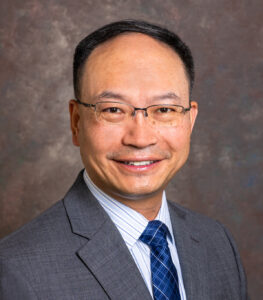
Weisong Shi is an Alumni Distinguished Professor and Department Chair of Computer and Information Sciences at the University of Delaware (UD). He leads the Connected and Autonomous Research (CAR) Laboratory. Dr. Shi is the Honorary Center Director of a recently funded NSF eCAT Industry-University Cooperative Research Center (IUCRC) (2023-2028), focusing on Electric, Connected, and Autonomous Technology for Mobility. He is an internationally renowned expert in edge computing, autonomous driving, and connected health. His pioneer paper, “Edge Computing: Vision and Challenges,” has been cited over 7300 times. Before joining UD, he was a professor at Wayne State University (2002-2022). He served in multiple administrative roles, including Associate Dean for Research and Graduate Studies at the College of Engineering and Interim Chair of the Computer Science Department. Dr. Shi also served as a National Science Foundation (NSF) program director (2013-2015). He is a Fellow of IEEE, an ACM Distinguished Scientist, and a member of the NSF CISE Advisory Committee.
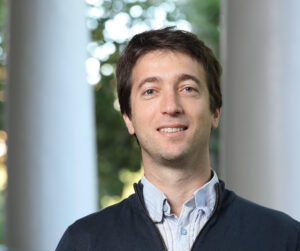 Sebastian Elbaum is a Professor in the Department of Computer Science at the University of Virginia where he co-leads the Lab for Engineering Safe Software (LESS Lab). His research aims to build dependable systems through domain-specific analysis techniques. He is the recipient of an NSF Career Award, an IBM Innovation Award, a Google Faculty Research Award, an FSE Test of Time Award, five ACM SigSoft Distinguished Paper Awards, and multiple best paper awards. He also holds several patents. He regularly serves in program committees at the top software engineering and robotic conferences, and has served as Program Co-Chair for ISSTA07, ESEM08, and ICSE2015, and as Steering Committee Chair for ICSE. He co-founded the company Drone Amplified. His latest work focuses on robotic systems with learned components. He is an ACM Fellow and an IEEE Fellow.
Sebastian Elbaum is a Professor in the Department of Computer Science at the University of Virginia where he co-leads the Lab for Engineering Safe Software (LESS Lab). His research aims to build dependable systems through domain-specific analysis techniques. He is the recipient of an NSF Career Award, an IBM Innovation Award, a Google Faculty Research Award, an FSE Test of Time Award, five ACM SigSoft Distinguished Paper Awards, and multiple best paper awards. He also holds several patents. He regularly serves in program committees at the top software engineering and robotic conferences, and has served as Program Co-Chair for ISSTA07, ESEM08, and ICSE2015, and as Steering Committee Chair for ICSE. He co-founded the company Drone Amplified. His latest work focuses on robotic systems with learned components. He is an ACM Fellow and an IEEE Fellow.
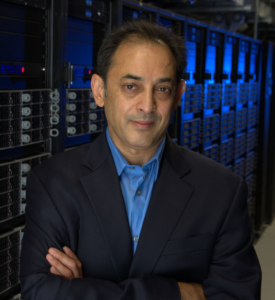 Manish Parashar is Director of the Scientific Computing and Imaging (SCI) Institute, Chair in Computational Science and Engineering, and Presidential Professor, Kalhert School of Computing at the University of Utah. He recently completed an IPA appointment at the National Science Foundation as Office Director of the NSF Office of Advanced Cyberinfrastructure where he oversaw investments in national cyberinfrastructure. He also served as co-chair of the National Science and Technology Council’s Subcommittee on the Future Advanced Computing Ecosystem and the National Artificial Intelligence Research Resource Task Force. Manish’s expertise is in high performance parallel and distributed computing and cyberinfrastructure, and he has made pioneering contributions towards enabling new insights through large-scale computations and data in a range of science and engineering domains. Manish has received a number of awards for his research and leadership, including most recently the 2023 IEEE Computer Society Sidney Fernbach Award and the 2024 CRA Distinguished Service Award. Manish is the founding chair of the IEEE Technical Consortium on High Performance Computing (TCHPC), and is Fellow of AAAS, ACM, and IEEE/IEEE Computer Society.
Manish Parashar is Director of the Scientific Computing and Imaging (SCI) Institute, Chair in Computational Science and Engineering, and Presidential Professor, Kalhert School of Computing at the University of Utah. He recently completed an IPA appointment at the National Science Foundation as Office Director of the NSF Office of Advanced Cyberinfrastructure where he oversaw investments in national cyberinfrastructure. He also served as co-chair of the National Science and Technology Council’s Subcommittee on the Future Advanced Computing Ecosystem and the National Artificial Intelligence Research Resource Task Force. Manish’s expertise is in high performance parallel and distributed computing and cyberinfrastructure, and he has made pioneering contributions towards enabling new insights through large-scale computations and data in a range of science and engineering domains. Manish has received a number of awards for his research and leadership, including most recently the 2023 IEEE Computer Society Sidney Fernbach Award and the 2024 CRA Distinguished Service Award. Manish is the founding chair of the IEEE Technical Consortium on High Performance Computing (TCHPC), and is Fellow of AAAS, ACM, and IEEE/IEEE Computer Society.
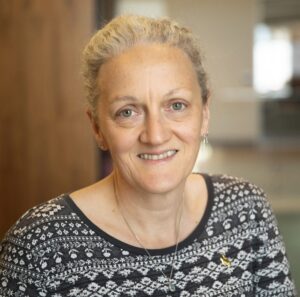 Gabrielle Allen is the Founding Director of the School of Computing at the University of Wyoming, where she is also a Professor of Mathematics and Statistics, and Adjunct Professor of Physics and Astronomy. She received a B.S. in Mathematics from Nottingham University in 1988, completed Part III of the Math Tripos (MASt) at Cambridge University in 1989, and received a PhD in Physics from Cardiff University in 1993. She has previously held academic positions in interdisciplinary computational science at Cardiff University, Max Planck Institute for Gravitational Physics, Louisiana State University, Skolkovo Institute of Science and Technology, and the University of Illinois Urbana-Champaign. From 2011 to 2012 she served as a Program Officer at the National Science Foundation in the Office of Cyberinfrastructure. Her research work has focused on the development and application of scientific community software, including the Cactus Framework, Einstein Toolkit, and Grid Application Toolkit. While her work has focused on the modeling of black holes, neutron stars, and gravitational waves, she has worked in diverse disciplinary fields including computer science, education, petroleum engineering, computational chemistry, coastal modeling, and computational fluid dynamics. Dr. Allen was awarded the Gordon Bell Prize in Supercomputing in 2001, the IEEE International Scalable Computing Challenge award in 2009, and the High-Performance Bandwidth Challenge award in 2002. In 2017 she was elected a Fellow of the American Physical Society.
Gabrielle Allen is the Founding Director of the School of Computing at the University of Wyoming, where she is also a Professor of Mathematics and Statistics, and Adjunct Professor of Physics and Astronomy. She received a B.S. in Mathematics from Nottingham University in 1988, completed Part III of the Math Tripos (MASt) at Cambridge University in 1989, and received a PhD in Physics from Cardiff University in 1993. She has previously held academic positions in interdisciplinary computational science at Cardiff University, Max Planck Institute for Gravitational Physics, Louisiana State University, Skolkovo Institute of Science and Technology, and the University of Illinois Urbana-Champaign. From 2011 to 2012 she served as a Program Officer at the National Science Foundation in the Office of Cyberinfrastructure. Her research work has focused on the development and application of scientific community software, including the Cactus Framework, Einstein Toolkit, and Grid Application Toolkit. While her work has focused on the modeling of black holes, neutron stars, and gravitational waves, she has worked in diverse disciplinary fields including computer science, education, petroleum engineering, computational chemistry, coastal modeling, and computational fluid dynamics. Dr. Allen was awarded the Gordon Bell Prize in Supercomputing in 2001, the IEEE International Scalable Computing Challenge award in 2009, and the High-Performance Bandwidth Challenge award in 2002. In 2017 she was elected a Fellow of the American Physical Society.
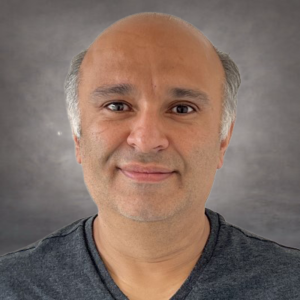 Rayid Ghani is a Distinguished Career Professor in the Machine Learning Department and the Heinz College of Information Systems and Public Policy at Carnegie Mellon University. Rayid works at the intersection of AI/ML/Data Science and Public Policy/Social Good, focusing on developing and using these technologies to help tackle public policy and social challenges with a deliberate focus on fairness and equity. Rayid closely works with governments and nonprofits to help[ develop systems in policy areas such as health, human services, criminal justice, education, public safety, economic development, and urban infrastructure. He is also passionate about teaching practical ML and data science and started the Data Science for Social Good Fellowship that trains computer scientists, statisticians, and social scientists from around the world to work on data science problems with social impact. His research focuses on Human-ML collaborative systems, dealing with fairness and bias issues in ML/AI systems, and on AI governance. Before joining Carnegie Mellon University, Rayid was the founding director of the Center for Data Science & Public Policy, research associate professor in Computer Science, and a senior fellow at the Harris School of Public Policy at the University of Chicago. Previously, he was the chief scientist of the Obama 2012 Election Campaign where he focused on data, analytics, and technology to target and influence voters, donors, and volunteers. In his ample free time, Rayid obsesses over everything related to coffee and works with nonprofits to help them with their data, analytics, and digital efforts and strategy.
Rayid Ghani is a Distinguished Career Professor in the Machine Learning Department and the Heinz College of Information Systems and Public Policy at Carnegie Mellon University. Rayid works at the intersection of AI/ML/Data Science and Public Policy/Social Good, focusing on developing and using these technologies to help tackle public policy and social challenges with a deliberate focus on fairness and equity. Rayid closely works with governments and nonprofits to help[ develop systems in policy areas such as health, human services, criminal justice, education, public safety, economic development, and urban infrastructure. He is also passionate about teaching practical ML and data science and started the Data Science for Social Good Fellowship that trains computer scientists, statisticians, and social scientists from around the world to work on data science problems with social impact. His research focuses on Human-ML collaborative systems, dealing with fairness and bias issues in ML/AI systems, and on AI governance. Before joining Carnegie Mellon University, Rayid was the founding director of the Center for Data Science & Public Policy, research associate professor in Computer Science, and a senior fellow at the Harris School of Public Policy at the University of Chicago. Previously, he was the chief scientist of the Obama 2012 Election Campaign where he focused on data, analytics, and technology to target and influence voters, donors, and volunteers. In his ample free time, Rayid obsesses over everything related to coffee and works with nonprofits to help them with their data, analytics, and digital efforts and strategy.
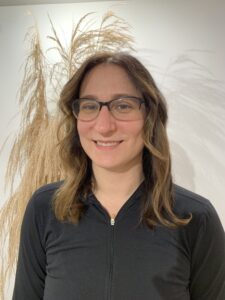 Rachel Greenstadt is a Professor of Computer Science at New York University where she teaches graduate-level courses in computer security and privacy. She founded the Privacy, Security, and Automation Laboratory at Drexel University in 2008. She leads a research team of PhD students and undergraduates with interests and expertise in information extraction, machine learning, human-centered computing, privacy, trust, and security. Dr. Greenstadt’s scholarship has been recognized by the privacy research community. She is an alum of the DARPA Computer Science Study Group and a recipient of the NSF CAREER Award. Her work has received the PET Award for Outstanding Research in Privacy Enhancing Technologies, the USENIX Distinguished Paper Award, the CSCW Best Paper Award, and the Andreas Pfitzmann Best Student Paper Award. She served as co-editor-in-chief of the journal Proceedings on Privacy Enhancing Technologies (PoPETs) for the 2017 and 2018 volumes and was the co-program-chair of the 2021 USENIX Security Symposium. Her research has been featured in the New York Times, the New Republic, Der Spiegel, and other local and international media outlets.
Rachel Greenstadt is a Professor of Computer Science at New York University where she teaches graduate-level courses in computer security and privacy. She founded the Privacy, Security, and Automation Laboratory at Drexel University in 2008. She leads a research team of PhD students and undergraduates with interests and expertise in information extraction, machine learning, human-centered computing, privacy, trust, and security. Dr. Greenstadt’s scholarship has been recognized by the privacy research community. She is an alum of the DARPA Computer Science Study Group and a recipient of the NSF CAREER Award. Her work has received the PET Award for Outstanding Research in Privacy Enhancing Technologies, the USENIX Distinguished Paper Award, the CSCW Best Paper Award, and the Andreas Pfitzmann Best Student Paper Award. She served as co-editor-in-chief of the journal Proceedings on Privacy Enhancing Technologies (PoPETs) for the 2017 and 2018 volumes and was the co-program-chair of the 2021 USENIX Security Symposium. Her research has been featured in the New York Times, the New Republic, Der Spiegel, and other local and international media outlets.
Learn more about the CCC Council and its members on our webpage!









